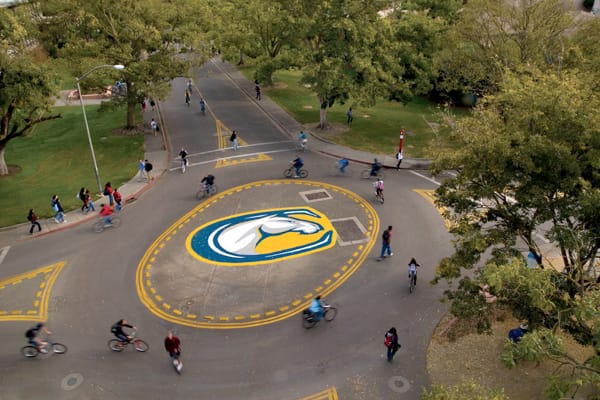Under financial pressure, UC Davis takes bold step to become 'private' University


UC Davis has come up with an answer to the crushing budget reductions that the State of California has thrown its way: become a private university. While that’s not exactly what University Chancellor Linda Katehi said in her move to add 5,000 mostly non-California students to the UCD population by 2016, it is the essence of the new program.
Davis is following what is called the Michigan plan, which will grow the University with more than 50 percent of its expanded base of new students paying double the tuition of in-state students. This market-based approach is one of the only means of protecting the extraordinary asset of California’s great University system while absorbing budget cuts that might otherwise gut the schools and send their faculties fleeing to other institutions or to private industry.
Schools like the University of Michigan and the University of North Carolina at Chapel Hill have maintained their academic standing with similar plans. The downside is the squeeze such processes will put on state students.
In-state tuitions will rise by up to 16 percent each year for the next four years according to current budget proposals, with no evidence that these increases will slow down thereafter. The reality of this situation is such that it is already cheaper for a middle-income family to send their children to Harvard than to a UC (based on standard available tuition assistance from Harvard for a family earning $80,000 annually).
It was only 40 years ago that tuitions for California state universities were free, and entry to UCs was guaranteed to any California high school graduate in the top tier of his or her class. While guaranteed placement for the state’s top high school students remain in place, today’s in-state tuition has ballooned to approximately $11,300, not including books and other fees – an exclusionary amount for many families. And there is no guarantee as to which UC a high performing California student will be accepted.
Under the new plans, state students must compete for spots at the most prestigious UCs with aspirants from across the country and around the world. Davis is generally ranked between third and fifth among the UCs depending on the rating system. Berkeley and UCLA are usually considered the top two UCs. Davis is one of the top schools in the nation for viticulture, veterinary medicine and bio-technology and one of five UCs with a medical school.
Chancellor Katehi’s program cannot go forward without funding for campus infrastructure to support the 5,000 additional students, most of whom will require dorm space for at least some of their college stay. The city of Davis itself will also need to find the means to support this growth in student population (and its concomitant increase in bicycles, skateboards and motor scooters).
But the program may well save one of the region’s most powerful engines of growth. UC Davis has helped power the success of Napa and Sonoma wine growers, the bio-tech revolution that has been centered in the Vacaville region, and the solar energy industry that is just beginning to take wing in Sacramento. Silicon Valley would never be where it is today without the presence of the UCs at Berkley and Santa Cruz, as well as Stanford University and San Jose State. The state and region cannot afford to let its great universities whither because budgets are shrinking.
And while the creative approaches our great universities use might well turn them into some sort of hybrids between public and private institutions that can no longer serve the people of California as they did 40 years ago, at least they will be saved for future generations. Go Aggies!



